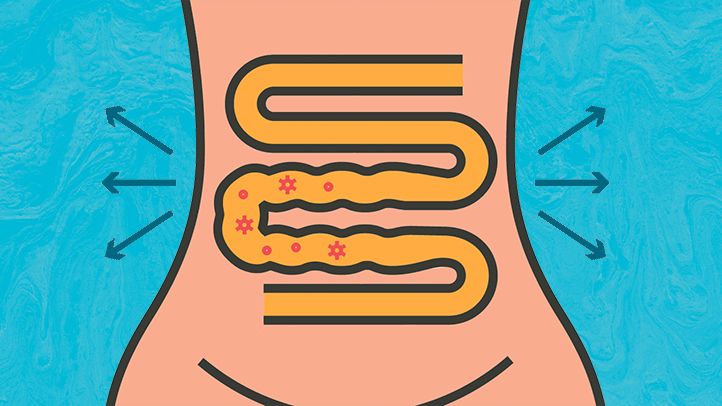What Is The Purpose Of Antidiarrheal Medications In Managing Loose Stools?

Antidiarrheal medications are commonly used in the management of loose stools, a condition characterized by frequent and watery bowel movements. This article aims to explore the purpose of antidiarrheal medications in managing loose stools, including their mechanisms of action, types available, appropriate usage, potential side effects, and alternative methods for managing this condition.
Loose stools can arise from various causes, such as infections, dietary factors, medications, or underlying medical conditions. Antidiarrheal medications primarily function by altering the motility of the gastrointestinal tract or reducing the secretion of fluids into the intestines. They can provide symptomatic relief and assist in restoring normal bowel function.
However, it is crucial to understand the potential side effects and precautions associated with these medications, as well as consider alternative management approaches. Consulting a healthcare professional is essential to ensure appropriate and safe usage of antidiarrheal medications in the management of loose stools. Proper understanding and management of loose stools are vital to alleviate symptoms and improve overall well-being.
Key Takeaways
- Antidiarrheal medications provide temporary relief for managing loose stools.
- Antidiarrheal medications should be used under healthcare professional guidance.
- Antidiarrheal medications should not be relied upon as the sole means of managing loose stools.
- A comprehensive approach including dietary modifications and stress management is essential for managing loose stools.
Causes and Symptoms of Loose Stools
Causes and symptoms of loose stools include various factors such as viral or bacterial infections, food intolerances, medication side effects, and gastrointestinal disorders.
Loose stools, also known as diarrhea, are characterized by frequent bowel movements that are watery and loose in consistency.
Viral or bacterial infections, such as gastroenteritis, are common causes of loose stools. These infections can be transmitted through contaminated food or water, leading to inflammation of the gastrointestinal tract.
Food intolerances, such as lactose intolerance, can also result in loose stools due to the body’s inability to properly digest certain foods.
Additionally, certain medications, such as antibiotics or laxatives, can have a side effect of loose stools.
Gastrointestinal disorders, such as irritable bowel syndrome or inflammatory bowel disease, can cause chronic loose stools as well.
Understanding the causes and symptoms of loose stools is crucial in managing this condition effectively.
How Antidiarrheal Medications Work
Antidiarrheal medications function by inhibiting excessive bowel movements and reducing fluid secretion in order to restore regularity and firmness to stool consistency.
These medications work by targeting different mechanisms in the body to alleviate symptoms of diarrhea. For instance, some antidiarrheals act by slowing down the movement of the intestines, allowing more time for fluid absorption and promoting the formation of more solid stools. Others work by reducing the secretion of fluids into the intestines, thereby decreasing the volume and frequency of loose stools.
The effectiveness of antidiarrheal medications varies depending on the underlying cause of the diarrhea. In cases of acute diarrhea caused by infection or certain medications, antidiarrheals can help alleviate symptoms and promote faster recovery. However, it is important to note that antidiarrheal medications are not recommended for certain types of diarrhea, such as those caused by bacterial or parasitic infections, as they may interfere with the body’s natural process of eliminating the infectious agent.
Common side effects of antidiarrheal medications include constipation, bloating, and stomach cramps. These side effects may occur due to the slowing down of intestinal motility caused by the medication. It is important to follow the recommended dosage and duration of treatment to minimize the risk of side effects.
Types of Antidiarrheal Medications
There are various types of medications available that can help alleviate symptoms of diarrhea and restore regularity and firmness to stool consistency.
These antidiarrheal medications work by targeting the underlying causes of loose stools and promoting normal bowel function.
- Loperamide: This medication slows down the movement of the intestines, allowing more time for water to be absorbed and stools to become firmer.
- Bismuth subsalicylate: This medication has both antimicrobial and anti-inflammatory properties, reducing inflammation in the intestines and killing certain bacteria that can cause diarrhea.
- Probiotics: These are live bacteria and yeasts that are beneficial for the digestive system. They help restore the natural balance of bacteria in the gut, which can be disrupted during episodes of diarrhea.
It is important to note that antidiarrheal medications may interact with other drugs, so it is advisable to consult a healthcare professional before taking them.
Additionally, some antidiarrheal medications are available over the counter, providing convenient options for managing loose stools.
When to Use Antidiarrheal Medications
One crucial aspect to consider when deciding on the appropriate use of antidiarrheal medications is determining the appropriate timing for their administration. In general, antidiarrheal medications should only be used in cases of acute diarrhea that is not caused by a bacterial or parasitic infection. The management guidelines recommend using antidiarrheal medications when symptoms persist for more than 48 hours or if the diarrhea is severe and causing dehydration.
However, it is important to note that antidiarrheal medications are contraindicated in certain situations. They should not be used in cases of bloody diarrhea, high fever, or if the patient has signs of systemic infection. Additionally, caution should be exercised when using antidiarrheal medications in young children, the elderly, and individuals with certain medical conditions.
It is crucial to read and follow the warnings and contraindications provided with each specific medication to ensure safe and appropriate use.
Potential Side Effects and Precautions
Potential side effects and precautions to consider when using antidiarrheal medications include gastrointestinal disturbances such as constipation, abdominal discomfort, and bloating, as well as the possibility of drug interactions and allergic reactions.
It is important to be aware of potential drug interactions when taking antidiarrheal medications, as they may interact with other medications, leading to adverse effects or reduced efficacy. It is recommended to consult with a healthcare professional or pharmacist to ensure that there are no potential interactions with other medications being taken.
Additionally, it is crucial to follow the recommended dosage instructions provided by the medication’s packaging or as advised by a healthcare professional. Taking excessive amounts of antidiarrheal medications can lead to further complications and may exacerbate symptoms.
It is also important to note that antidiarrheal medications should not be used for prolonged periods without medical supervision, as they may mask underlying conditions and delay appropriate treatment.
Alternative Methods for Managing Loose Stools
Alternative methods for addressing loose stools include implementing dietary changes and incorporating natural remedies. These approaches can be beneficial for individuals who prefer a more holistic approach or who want to avoid the potential side effects of antidiarrheal medications.
One common dietary change is to consume foods that are high in soluble fiber, such as bananas, oats, and rice. Soluble fiber helps to absorb excess water in the intestines, making stools firmer.
Another approach is to avoid foods that can irritate the digestive system, such as spicy foods, caffeine, and alcohol.
Natural remedies, such as ginger, peppermint, and chamomile tea, can also be effective in soothing the digestive system and reducing inflammation.
It is important to note, however, that these alternative methods may not be as immediately effective as antidiarrheal medications and may require a trial-and-error approach to find what works best for each individual.
Consultation with a Healthcare Professional
Consultation with a healthcare professional is crucial for obtaining personalized advice and guidance in effectively addressing gastrointestinal concerns. When it comes to managing loose stools, seeking the advice of a healthcare professional can provide numerous benefits.
A healthcare professional is trained to diagnose the underlying cause of loose stools and can tailor a treatment plan based on the individual’s specific needs. They can also provide guidance on lifestyle modifications, dietary changes, and the use of antidiarrheal medications if necessary.
Consulting with a healthcare professional ensures that the individual receives appropriate advice that is tailored to their unique circumstances. Additionally, they can monitor the effectiveness of the treatment plan and make adjustments as needed.
Overall, seeking consultation with a healthcare professional is essential for effectively managing loose stools and improving gastrointestinal health.
Conclusion: The Importance of Proper Management of Loose Stools
In conclusion, effectively managing loose stools is crucial for maintaining optimal gastrointestinal health and overall well-being.
One important aspect of managing loose stools is the role of diet. A diet high in fiber can help add bulk to the stool and promote regular bowel movements. On the other hand, certain foods such as spicy or greasy foods can exacerbate loose stools and should be avoided.
Additionally, it is important to consider the impact of stress on bowel movements. Stress can disrupt the normal functioning of the digestive system, leading to loose stools. Therefore, managing stress through relaxation techniques or therapy can be beneficial in preventing and managing loose stools.
While antidiarrheal medications can provide temporary relief, they should be used under the guidance of a healthcare professional and should not be relied upon as the sole means of managing loose stools.
Overall, a comprehensive approach that includes dietary modifications and stress management is essential in effectively managing loose stools.
Frequently Asked Questions
Are antidiarrheal medications safe for children to use?
Safety concerns and effectiveness evaluation of antidiarrheal medications in children are important. Studies have shown that these medications may have potential side effects, and their efficacy in managing loose stools in children needs further investigation.
Can antidiarrheal medications be used to treat diarrhea caused by food poisoning?
Antidiarrheal medications can be used to treat diarrhea caused by food poisoning. They are effective in reducing the frequency and severity of loose stools. However, alternative treatments for food poisoning should also be considered.
Is it necessary to consult a healthcare professional before using antidiarrheal medications?
Consultation with a healthcare professional is necessary before using antidiarrheal medications due to potential side effects. It is important to discuss individual circumstances and medical history to ensure safe and appropriate use of these medications.
Can antidiarrheal medications be taken with other medications?
Antidiarrheal medications may interact with other medications, potentially leading to harmful side effects. It is important to consult a healthcare professional before using antidiarrheal medications to ensure safety and avoid potential drug interactions.
Can antidiarrheal medications be used for long-term management of loose stools?
Long-term use of antidiarrheal medications for managing loose stools should be avoided due to potential adverse effects. Alternative treatments, such as dietary changes, probiotics, and hydration, should be considered to address the underlying cause of diarrhea.









